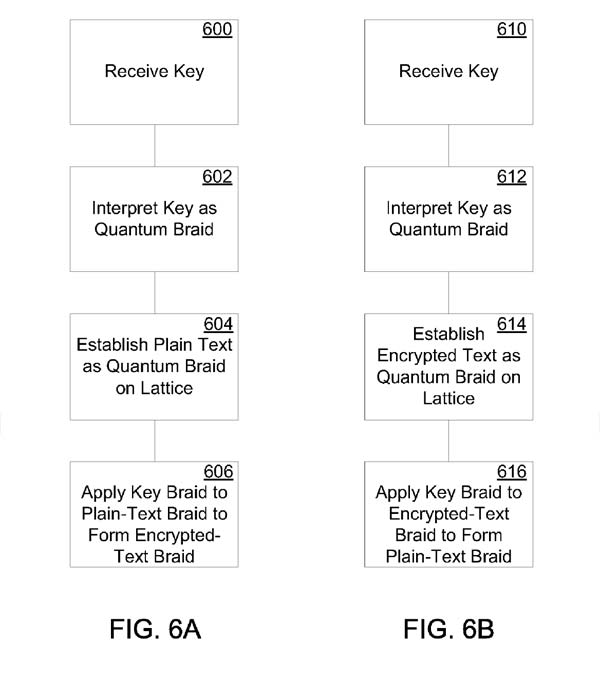Microsoft Receives Quantum Computing Patent
Microsoft filed a patent for "quantum computational systems" back in 2009 and received confirmation by the USPTO yesterday.
What makes this patent interesting is not just the fact that Microsoft has begun covering its bases in quantum computing, which gives this field much more credibility, but its general nature to improve on "prior art" in topological quantum computing. Without a deep dive into quantum computing itself, much of the content covered by patent is confusing enough to make your head spin, but it is obvious that Microsoft is targeting quantum computing functionality in wide range of applications.
The Microsoft patent refers to specific quantum computing devices, including quantum computers, quantum cryptography systems, quantum information processing systems, quantum storage media, and special purpose quantum simulators, all of which are covered in this patent by themselves and in combination with traditional computing systems. Microsoft spends quite a bit of time on cryptography systems and states that "cryptography also would be revolutionized" if computers could "exploit quantum mechanical superpositions".
In a cryptography application, Microsoft explains that "respective braids that correspond to the plain text and the encryption key may be defined. The key braid may be applied to the plain-text braid to generate an encrypted-text braid. To decrypt the encrypted text, the key braid may be applied to the encrypted text braid to reestablish the plain-text braid." It is generally believed that quantum computing systems could deliver cryptography applications that are far more secure than today's solutions
Get Tom's Hardware's best news and in-depth reviews, straight to your inbox.

Wolfgang Gruener is an experienced professional in digital strategy and content, specializing in web strategy, content architecture, user experience, and applying AI in content operations within the insurtech industry. His previous roles include Director, Digital Strategy and Content Experience at American Eagle, Managing Editor at TG Daily, and contributing to publications like Tom's Guide and Tom's Hardware.
-
Zeknichov The fact that you can patent something before its been developed and works is sickening. The whole patent system is inefficient and is hurting the consumer.Reply -
amk-aka-Phantom ZeknichovThe fact that you can patent something before its been developed and works is sickening. The whole patent system is inefficient and is hurting the consumer.Reply
I agree, but hopefully this will destroy Linux and Mac OS :D -
AndrewMD @ eno5 - That would not be your same attitude if someone stole or copied something you are working on. If anything, this helps innovation by setting a standard base to work from, instead of multiple people working on the same process in different ways to get the same results.Reply -
Microsoft are not actively engaged in producing working quantum computing devices. They never will be.Reply
Are research students / groups the world over now more likely to put in years of effort to realise a technolgy that microsoft already has the patents for or are they more likely to just think 'f**k it dude, let's go bowling'? -
AbdullahG amk-aka-PhantomI agree, but hopefully this will destroy Linux and Mac OSHow is Linux and Mac OS relevant to quantum computing? What sets apart quantum computing from standard computers in mainly transistors (and the fact that quantum computers use quantum mechanic principles).Reply
-
gmarsack I wonder if I can patent the patent process... this way, I can get a royalty on any one wishing to apply for a nonsense patent and not feel so bad when I read money grabs like this. It's sick to think this kind of patent system exists! :(Reply -
amk-aka-Phantom AbdullahGHow is Linux and Mac OS relevant to quantum computing? What sets apart quantum computing from standard computers in mainly transistors (and the fact that quantum computers use quantum mechanic principles).Reply
They're not, because that MS patent will keep them away from it for good.
Wow, lots of Linux fanboys on Tom's recently! What are you doing here? :D Core 2 Duo is enough for toying with your OS, you don't need Tom's content ;)
stuart72Microsoft are not actively engaged in producing working quantum computing devices. They never will be. Are research students / groups the world over now more likely to put in years of effort to realise a technolgy that microsoft already has the patents for or are they more likely to just think 'f**k it dude, let's go bowling'?
But they will make an OS to work with them. And of course they don't want some open source BS to steal their profits! Besides, research WILL be done, whether they want it or not; Asia, or example, doesn't care about patents and copyrights at all, 90% of all software here is pirated. And it gets work done :) -
Interesting, especially seeing as I work along side some of the biggest minds in quantum computing.Reply
-
ojas amk-aka-PhantomThey're not, because that MS patent will keep them away from it for good.Wow, lots of Linux fanboys on Tom's recently! What are you doing here? Core 2 Duo is enough for toying with your OS, you don't need Tom's contentReply
I know MacOS is annoying, but give open source programs their due! Without open source stuff we'd be in a pretty shitty world...and Linux does have its advantages.
amk-aka-PhantomBesides, research WILL be done, whether they want it or not; Asia, for example, doesn't care about patents and copyrights at all, 90% of all software here is pirated. And it gets work done
+10^6 :D
Though the fact that software is pirated so much lets PC game make devs lame excuses... :(
